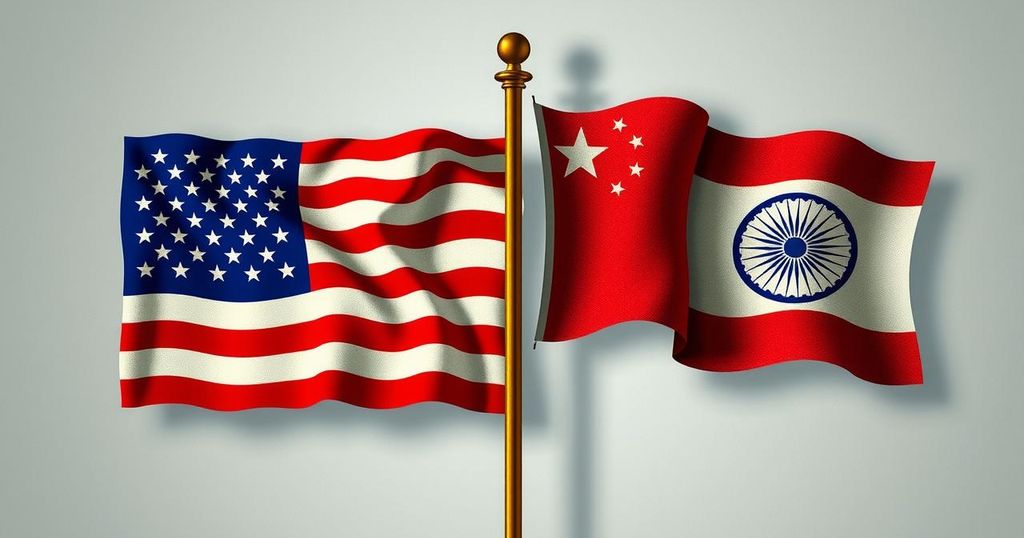Navigating U.S.-India Relations: Opportunities and Challenges Amid Trump’s Tariff Threats

President-elect Donald Trump threatens the BRICS nations with potential tariffs, while India attempts to leverage its unique position within the group and its personal rapport with Trump. Despite potential trade imbalances, experts predict that India can effectively navigate its relationship with the U.S. under Trump’s administration due to its pro-American sentiment and ongoing diplomatic efforts.
The United States President-elect, Donald Trump, maintains his stance as the self-proclaimed “tariff man,” recently targeting the BRICS nations with threats of 100% tariffs if they attempt to establish a new currency or replace the US dollar. As a founding member of BRICS, India plays a pivotal role in this intergovernmental organization, which also includes China and Russia. Trump has previously labeled India a “very big abuser” in terms of trade relations, which culminated in increased tariffs and the removal of preferential trade status for Indian products during his first term.
Despite the tensions, Trump shares a positive personal relationship with Indian Prime Minister Narendra Modi, which experts believe may benefit India in the upcoming administration. Unlike its other BRICS counterparts, India possesses a pro-American sentiment, which could enhance its diplomatic leverage. Additionally, India’s Foreign Minister, Subrahmanyam Jaishankar, recently reaffirmed India’s commitment to maintaining the importance of the US dollar in international trade. Modi and Trump’s mutual admiration has been showcased during events such as the “Howdy Modi” rally in Texas and the “Namaste Trump” event in Ahmedabad.
Although the pro-Washington sentiment in India prevails, concerns about potential tariffs loom. Observers from the Wilson Center suggest that the trade relationship, currently favoring India, could become transactional under Trump’s administration. Both experts agree that while challenges such as trade imbalances exist, they are manageable. The nature of Trump’s negotiations requires India to navigate a delicate balance, leveraging its interests while maintaining strong relations with the United States. Thus, India’s optimism regarding its diplomatic strategy and economic interests remains steadfast, as it continues to engage with the new administration effectively.
The political and economic dynamics between India and the United States have evolved significantly, particularly in light of American foreign policy under President Donald Trump. With India being a central member of the BRICS group alongside China, Brazil, and Russia, its relationship with the U.S. is crucial in navigating international trade and diplomatic engagements. Trump’s previous administration demonstrated a tendency towards protectionist policies that directly affected India’s trade status, provoking a reevaluation of economic strategies. However, India’s unique position as a pro-American country within BRICS presents it with opportunities to bolster its role on the global stage while managing challenges created by tariff threats and imbalanced trade relationships.
India stands at a critical juncture as it prepares to engage with the Trump administration. The historical context of its relationship, characterized by both challenges and mutual respect, suggests that India can utilize its unique position within BRICS to navigate potential tariffs and promote its strategic interests. With strong personal ties between Modi and Trump, India remains optimistic that its diplomatic efforts will yield favorable outcomes, despite the unpredictability associated with a deal-making style of governance.
Original Source: www.cnn.com








